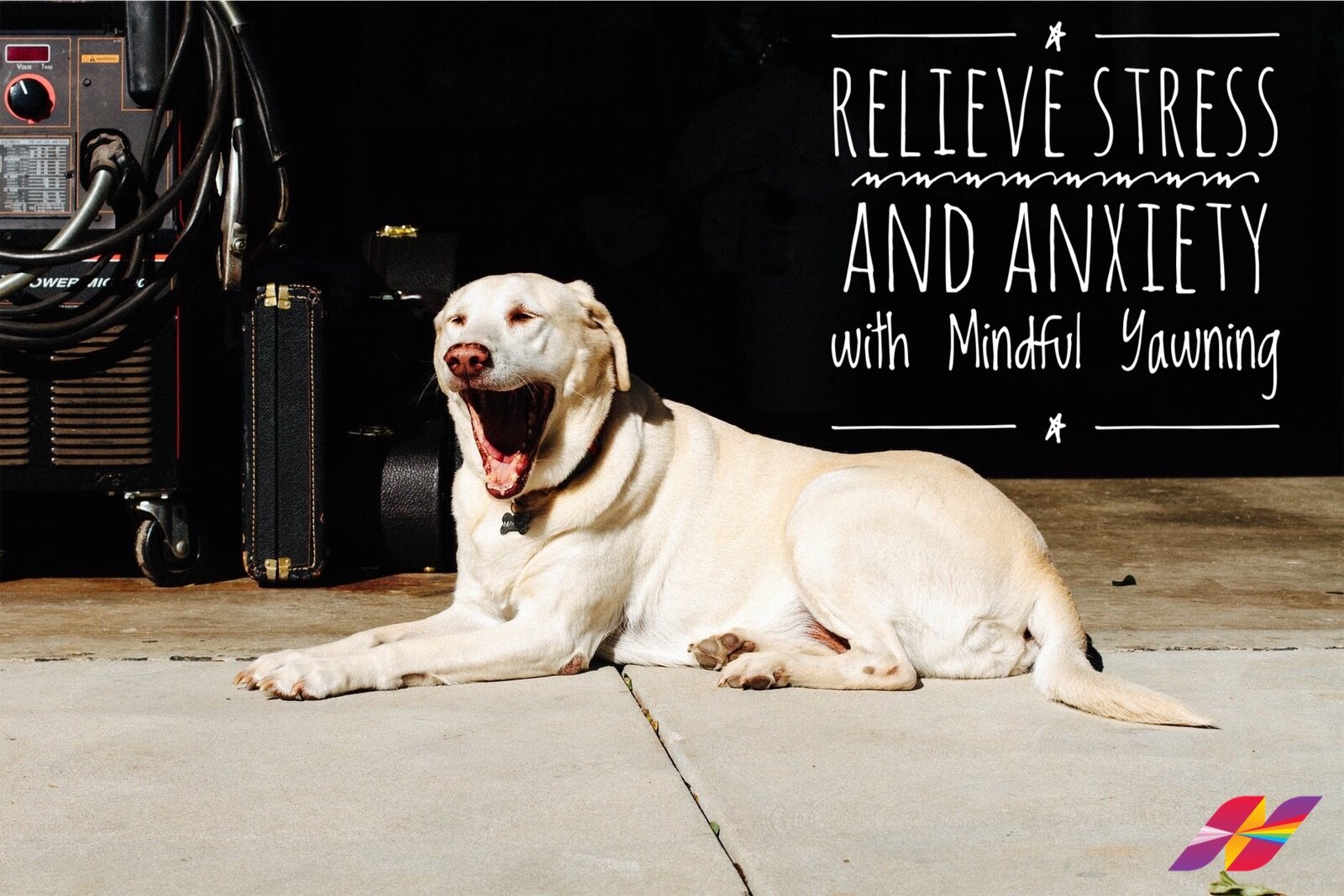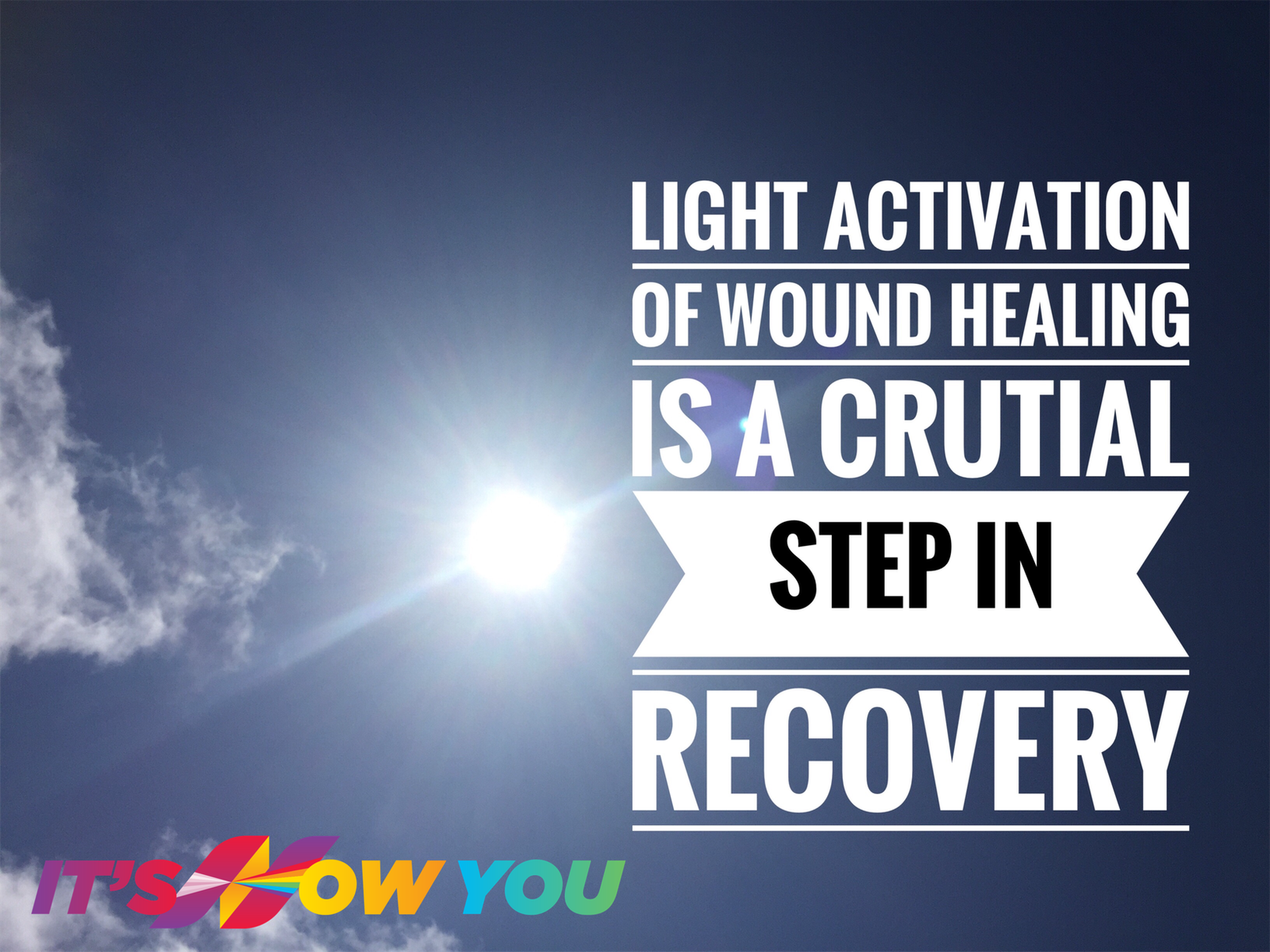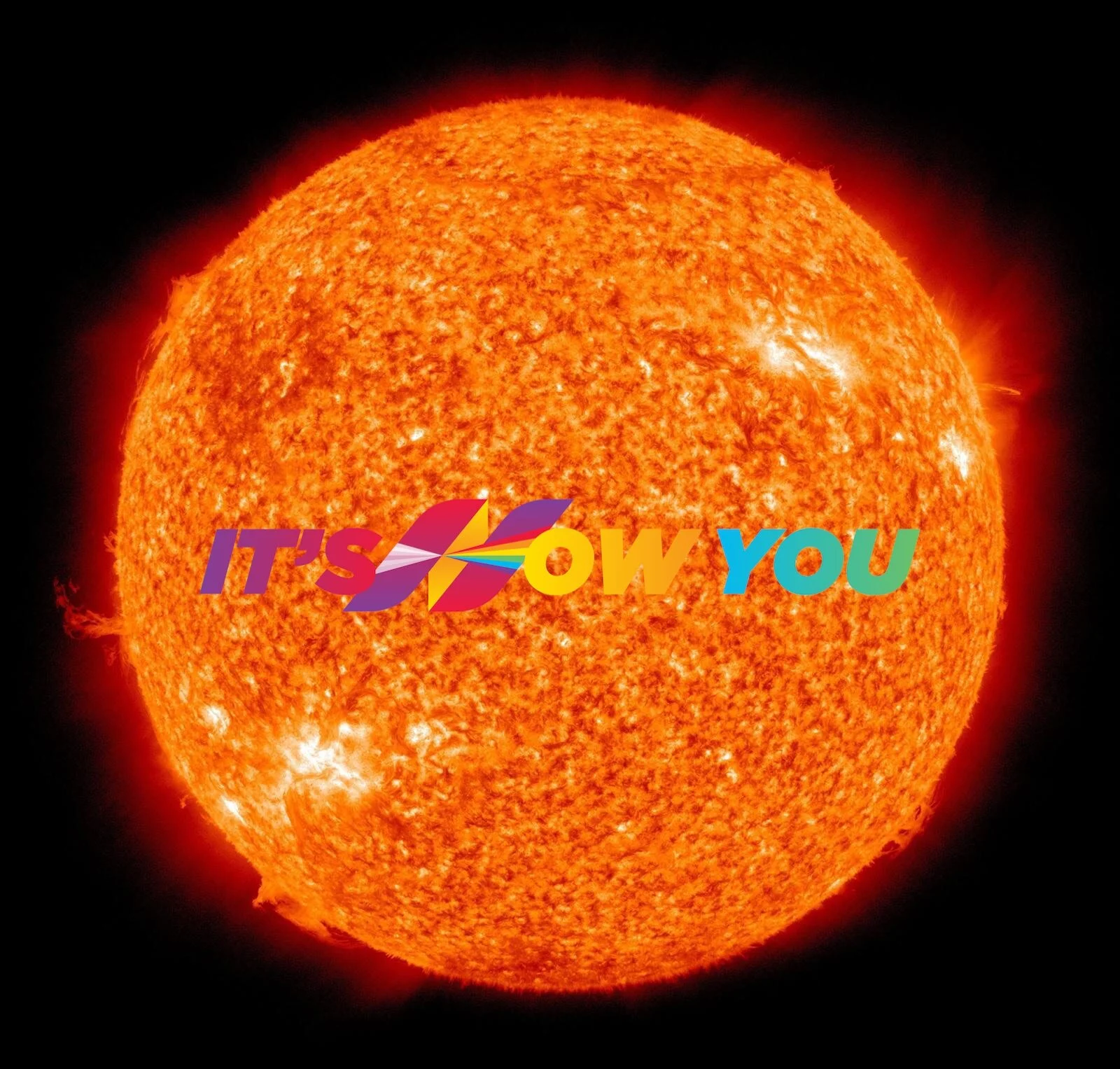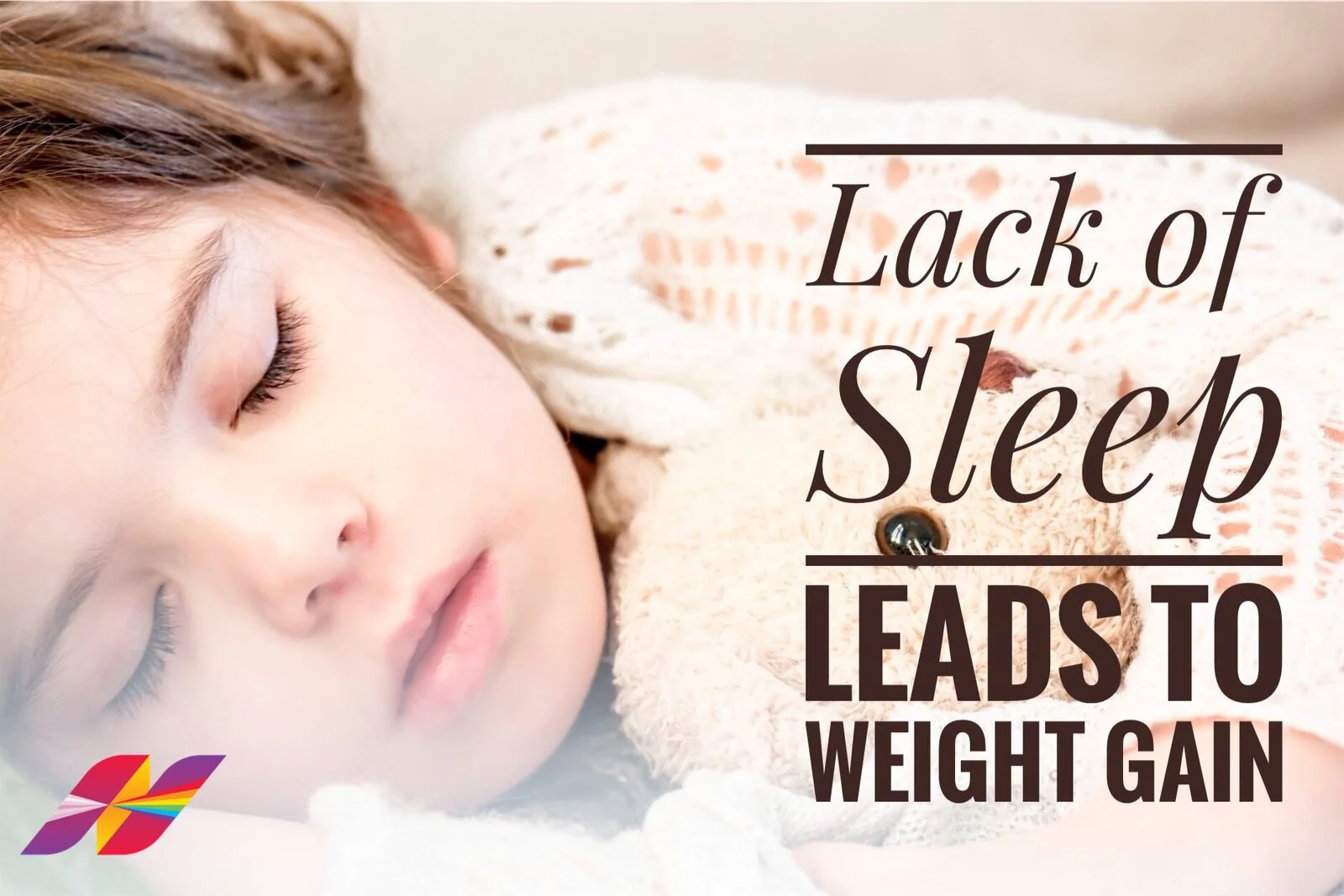Light and Circadian Biology #6 - Foundational Sleep
Are you a shift worker?
Do you sleep less than 5.5 hours a night or more than 9.5?
Is your first drink in the morning a coffee?
Does it take you more than 30 minutes to fall asleep once you’re in bed?
Do you wake up at night multiple times?
Are you woken up by the tiniest sound or light?
Do you have insomnia, sleep apnea, chronic fatigue, adrenal fatigue, Hashimoto’s or Graves disease?
Do you still feel tired when you wake up?
Do you yawn?
If you answered yes to any of the above, you have some level of sleep dysfunction. Today’s blog post is for you!
What is sleep?
Sleep is an electromagnetic circadian controlled system run by magnetic fields, electric currents, and hormones. It is influenced by your immediate environment. The two most important hormones in this dance of sleep are melatonin and cortisol.
Sleep is a time for recycling and rebuilding to get us ready for the next day. It is also a time when our immune system is retooled to fight the battle the next day. Wound healing has been shown to be affected by sleep.
The purpose of sleep is to demyelinate your genome. If you are sleep deprived, have sleep apnea or insomnia your brain stem will be hypermethylated. This can result in any number of chronic diseases. Sleep maximises the mitochondrial programs, Autophagy and Apoptosis, because it fine-tunes mitochondrial function in the system. REM Sleep is the most important sleep stage for mitochondrial biology. Autophagy is cell recycling and Apoptosis destroys unhealthy cells.
Autophagy and Sleep
Autophagy is the process of cellular renewal when proteins are recycled. When autophagy is functioning optimally, learning ability is improved and repair of the brain from oxidative damage takes place. Humans undergo the process of autophagy at night (usually between 2am and 5am).
People who have sleep problems are generally obese, inflamed, leptin resistant and never get their pulsatile growth hormone release at the correct times of the day/night. Therefore, autophagy functions poorly. If autophagy is poor, diseases are more prolific, and aging occurs much faster because sleep is uncoupled from metabolism.
People with sleep problems chronically begin a new day with old proteins and enzymes that have not been renewed by sleep. When these are used, this causes altered cell signalling and favours Neolithic disease.
Sleep requires that leptin is yoked to diet, metabolism, and light. Light stimulates the ability for humans to feed. Darkness stimulates no food and sleep. The pituitary hormone ‘Leptin’ regulates the paraventricular nucleus (PVN). When Leptin is functioning optimally, it stimulates the PVN to release more ADH and Oxytocin before bed and during sleep and inhibits the sympathetic nervous system from releasing cortisol.
For Example: Sleep
ADH stops you from urinating
Oxytocin helps you fall asleep faster
Cortisol wakes you up
Studies show that if we sleep less than 5.5 hours or more than 9.5 hours consistently, we live shorter lives. Ideal sleep duration is 8 hours. University of California San Diego psychiatry study of more than 1 million adults (men and women) found, people who sleep at least 6 - 7 hours have been shown to live longer. However, this does not matter at all if the time of day you are sleeping is not linked to circadian timing!
Melatonin makes you insulin resistant, cortisol makes you insulin sensitive. This is fantastic for making you a glucose/sugar burner whilst you are awake and a fat burner whilst you are asleep. Humans are designed to be ketogenic whilst we sleep; 8 hours without food. Melatonin is made predominantly in the part of the brain called the hypothalamus. It is also made from the conversion of serotonin in the gut and is made by every mitochondrion in your body. There are between 1,000 and 5,000 mitochondria, on average, in every cell in your body. No wonder a good night’s sleep involves a healthy coordination between all parts of your body and brain!
The hypothalamus requires 3-4 hours of darkness and no food in order to begin its role as our master sleep controller. This means that exposing your eyes and skin to artificial light after sunset or even eating a meal after sunset will suppress melatonin’s release and thus begin to destroy your sleep.
The Sleep Cycle
Ideal sleep is early deep sleep pre 12am and then REM and Deep in and out for the remainder of the night.
Stage 1: Beginning of sleep
This stage denotes the transition period between wakefulness and sleep. the brain produces high amplitude theta waves, which are very slow brain waves. This period of sleep lasts only a brief time (around five to 10 minutes). If you awaken someone during this stage, they might report that they were not really asleep.
Stage 2: Light Sleep
Less aware of surroundings
Body temperature drops
Breathing and heart rate become more regular
Stage 2 is the second stage of sleep and lasts for approximately 20 minutes. The brain begins to produce bursts of rapid, rhythmic brain wave activity known as sleep spindles. Body temperature starts to decrease, and heart rate begins to slow. According to the American Sleep Foundation, people spend approximately 50 percent of their total sleep in this stage.
Stage 3: Deep Sleep
Muscles relax
Blood pressure and breathing rate drop
Deepest sleep occurs
This stage was previously divided into stages 3 and 4. Deep, slow brain waves known as delta waves begin to emerge during stage 3 sleep. This stage is also sometimes referred to as delta sleep.
During this stage, people become less responsive and noises and activity in the environment may fail to generate a response. It also acts as a transitional period between light sleep and a very deep sleep.
Older studies suggested that bed-wetting was most likely to occur during this deep stage of sleep, but some more recent evidence suggests that such bed-wetting can also occur at other stages. Sleepwalking also tends to occur most often during the deep sleep of this stage.
What is deep sleep?
Classically, deep sleep is NREM stage 3 (this is the old stage 3 and 4 of sleep).
This stage is defined by the presence of Delta waves that have a frequency of less than 2 Hertz. This is a relatively lower frequency than all the other brain waves of sleep.
Hence, this is called slow wave sleep.
In Sleep Medicine world, deep sleep = slow wave sleep
The most characteristic part of deep sleep is the amplitude of the Delta waves (this refers to how tall the waves are). this is known as “Delta power’.
In general, more delta power correlates to better sleep quality.
This means that 2 people can have the same amount of deep sleep but if one person has more Delta power, that person had better sleep quality.
As such, the time spent in deep sleep isn't necessarily as important as the quality of deep sleep.
Stage 4: REM
The brain becomes more active
Body becomes relaxed and immobilized
Dreams occur
Eyes move rapidly
Most dreaming occurs during the fourth stage of sleep, known as rapid eye movement (REM) sleep. REM sleep is characterized by eye movement, increased respiration rate, and increased brain activity. The American Sleep Foundation suggests that people spend approximately 20 percent of their total sleep in this stage.
REM sleep is also referred to as paradoxical sleep because while the brain and other body systems become more active, muscles become more relaxed. Dreaming occurs due to increased brain activity, but voluntary muscles become immobilized.
Pro Tip: When autophagy is at its most efficient, we release Growth Hormone (GH) at its highest levels. This occurs in humans in Stage three and four sleep. The problem is, modern lifestyle does not let most humans enter that stage long enough. The way to measure the efficiency is the DHEA level. That tells you how good, bad, or ugly sleep/metabolic efficiency is with a cheap blood test. Every client I have seen with a bad DHEA level had a bad sleep study.
The four keys to sleep:
1. Sleep begins in the morning
If you’ve visited a sleep doctor you would have heard them mention melatonin. Melatonin is widely understood as our sleep hormone. But do you know how it’s made? Via UV-A light on the eyes and skin. How? The aromatic amino acid tryptophan is the amino acid responsible for the generation of vital sleep hormones like melatonin and serotonin. But tryptophan must be excited by ultraviolet light in its benzene ring structure in order to synthesize melatonin.
So, this means that melatonin is generated during the day under UV-A light exposure to be used at night whilst we sleep allowing us to regenerate. Furthermore, UVA light on the eye and skin improves sleep beyond creating serotonin and melatonin simply because it changes how much energy and information can be stored in the water networks within blood plasma. This photonic energy and information signal buried in our water networks eventually becomes Cerebral Spinal Fluid (CSF) that surrounds our brain. During the day this energy and information signals normal daily function and at night it changes to signal sleep. Next time you speak to an anaesthesiologist, ask them how a general anaesthetic works? They will tell you it’s to do with the DC electric current in the water networks of the CSF surrounding the brain. Thus, sleep is the ability to reverse the DC electric current around the body. This is why it’s key to be grounded when sleeping to allow the DC electric current to reverse at its highest efficiency. The best way to do this in our modern world is to go camping and put your phone on flight mode whilst you sleep.
During the day, toxic proteins are built up in neurons, ensuring quality sleep is key to reversing these toxins. Getting rid of these waste products and feeling refreshed after deep sleep is key to improving your EQ (Emotional Intelligence)
Cells are designed to structure water during daylight hours. This structuring effect lasts long into the night when quantum coherent excitations are occurring in the absence of light during rapid eye movement (REM) sleep (when we are paralysed). Regeneration can then take place via quantum coherence throughout the night and thus the creation of the living state the next morning. This implies that sleep was likely the original state when life began. Living organisms thus evolved wakefulness during daylight hours, while nocturnal animals reversed the process.
If you haven’t seen ultraviolet A light (UVA) during the day through your eyes or on your skin, you have insufficient melatonin and will, by definition have a poor night’s sleep. Tonight’s sleep began this morning.
You can use the app D-Minder to determine in your environment when UV-A sunlight is available.
Pro Tip: When the sun is angled above 15 degrees from the horizon UV-A sunlight is available.
2. The Wind Down Routine
How do you spend your final hour of the day?
A key aspect of sleep is your wind down routine. i.e. what you do 1 hour before bed. Is your body, brain and nervous system stimulated during this time or are you productively relaxing and easing into rest.
Clients ask me all the time: But now that I can only use candles after sunset, how do I find healthy things to do during the final few hours of the day? My answer is always individual based on their specific context, but here’s what I do.
I make the final decision of what time to go to bed just after sunset. If I’m by myself, I then listen to podcasts, audiobooks, watch a documentary with 100% red light filtered screen + blue blockers on or journal. If I’m with others, I socialise with long sleeves, long pants, a cap, and blue blockers on, meaningfully and in a relaxed way. Once it’s 1 hour before my selected time, I turn off all red screens and my phone and listen to soothing classical music or nature sounds, practice self-massage, complete a mindfulness meditation practice, practice deep slow breathing or set up a magnesium salt foot bath. By the end of this I’m so ready for bed that as soon as my head touches the pillow… I’m out.
There are so many factors which affect sleep quality. Some of the most common, less obvious ones are the following:
If you don’t feel safe in your bed/bedroom. If you are afraid, don’t feel comfortable, cannot relax, or are agitated, your depth of sleep will be very shallow.
If your nervous system is over-active. Did you watch or listen to entertainment before bed which was stimulatory for your senses? If so, your sleep quality will be diminished.
If you over-analyse or over-think. If you have any thoughts or ideas in your head when your head hits the pillow, your sleep will be affected. Write them down on a pad of paper or record a voice recording. Download them out of your head so you can relax.
If you have a light on in the room or can see street lights from your bedroom. Your room should be so dark that you cannot see your own hand if you hold it in front of your face.
If you have eaten within 4 hours of bedtime or spent the final 4 houses of your day exposed to artificial lighting from technology screens or lighting.
Most people who feel they sleep well actually have sleep dysfunction. This becomes majorly evident when they sleep with someone else and it disrupts their sleep regularly. 40% of all sleep disorders are associated with muscle spasms/restless leg syndrome.
Restless leg syndrome is a sleep disorder linked to low dopamine. Muscular vesiculations are an indicator of this. Cervical disk herniations, cervical myelopathy, fibromyalgia, and ALS present restless leg symptoms too. Also, other muscle diseases.
Low magnesium levels can cause sleep dysfunction. Infrared light is the lever which works with the 56 enzymes in the cell which allow magnesium to enhance/induce sleep by relaxing muscles.
If you are a mouth breather or a teeth grinder. Become a nose breather and stop grinding by practising a correct tongue posture (3/4 of your tongue on the roof of your mouth).
Humans can deeply rest when we settle into safety, silence, peacefulness, darkness, comfort, the earth, and universe. Completely surrendering, putting down all barriers and guard. Trust and have faith that you are safe. I’m reminded of this quote from Mahatma Gandhi: “Each night, when I go to sleep, I die. And the next morning, when I wake up, I am reborn.”
When you go to sleep, surrender your personality and beliefs, to uncover your true truth. How? Strategy = Meditation – Self Awareness and Self Knowledge. Focus on your presence and focus on your true environment and contentment and you will naturally wish to be there. When the mind comes with distractions, know that the thing which controls the attention is greater than the attention itself. When your mind distracts you, stay with yourself and notice your presence where you are.
3. Non-Native Electromagnetic Fields (nnEMF’s)
This one has a little more science, so get ready to get a bit geeky with me. From a physics standpoint, electric fields dominate during the day and magnetic fields dominate during the night. This is because electric fields are associated more with light and magnetic fields are more pronounced at night when the strong electric fields diminish. So, what does this mean? It means the magnetic field environment in your bedroom is very important. The earth’s magnetic field is what we are designed to be connected to at night. If we have man-made magnetic fields form the AC power grid or technology devices and appliances our sleep can be totally thrown off.
Magnetic effects on Earth are prominent at night and less during the day because of sunlight and heat which lower magnetism by the Curie point. Electric fields are more common in light and protein's side chain electric fields act as an antenna. This is why all WBC’s have a very specific circadian regulation tied to night and day, which can be seen in a peripheral blood smear done during day and night by doctors. During night time, the Earth's geomagnetic field is stronger on our dark side of the planet and our body pays deep attention to this small change. In the absence of sunlight it allows for a higher magnetic field locally in our tissues and blood, and as a result, more WBC’s tend to be released into our blood plasma. These WBC's are loaded with melatonin. Melatonin is then delivered magnetically to all parts of the body during sleep to help repair the mitochondrial DNA. This is because melatonin’s most vital function is to maintain energy flow from the respiratory proteins. The opposite effect is found during daylight. What does this imply when most labs these days are drawn during the day? They don’t notice the effect.
Daytime, de-magnetizes our tissues and this increases pulses of oxygen to our mitochondria as we awaken. We slowly become “de-gaussed” by UV light as it appears post-sunrise, and this acts to lower inflammation, improve oxygen delivery, and you can optimize our innate immune system by improving is competence. WBC's should be lowest during this time. When you don’t "de-gauss" or "de-magnetize", your circulatory system properly between night and day you can stimulate autoimmunity because of altered magnetic effects on T-regulator cells. This can be due to many stimuli we face in life like nano-particles in food, water and vaccines. Once you get an altered magnetic stimulus locally, it also induces electric changes in the protein side chains in our tissues. This is also a wireless biologic effect. In those tissues affected, that can lead to many illnesses of the immune system we see today (like auto-immunity).
UV light is also fully capable of “de-gaussing” (de-magnetizing) blood to allow it to release oxygen locally because of the higher temperature locally from sunlight to make electron spins in hemoglobin more random so that paramagnetic oxygen is released to mitochondria naturally. This is why venous O2 is higher in people who get sensible solar exposure and this is absent in people with incompetent immune systems for many reasons such as nanoparticles, viruses, and bacteria, fungi, or toxins. Remember, all Auto Immune (AI) conditions are deeply associated with low sulphated Vitamin D3 levels in the blood and high LDL levels. This finding acts as a proxy to an electromagnetic signalling breakdown.
Do you have technology in your room? Phones, computers, routers, modems, smart meters, switchboards, refrigerators, microwaves, game consuls, TVs, alarm clocks, phone chargers are the main culprits of an altered magnetic field in your bedroom. Powerlines within 15m of your bedroom are also a big issue. Metal springs inside your mattress, a metal bedframe, or PowerPoints/outlets within 2 meters of your head are also a big problem. Do you have a pool pump, hot water system, ducted heating unit, smart meter, or power box on the other side of your bedroom wall? If so, it might be wise to relocate the problem or sleep in another room.
Another disastrous electromagnetic field which destroys sleep quality is radio frequency (RF) radiation. Most of you would be more familiar with terms like Wi-Fi, 4G, 5G, Bluetooth and microwaves which come under this category of RF radiation. That means not just your wireless signals, but your neighbours will be affecting you whist you sleep. Go into your bedroom, turn on your Wi-Fi on your cell phone and see how many Wi-Fi signals you can get. All of those signals are pulsing through every one of your cells whilst they are supposed to be resting. This onslaught of non-native electromagnetic fields (nnEMF’s) in our environment are relentless. It’s no wonder we are all having trouble sleeping well.
The alpha wave in the brain links to the Schuman resonance of the earth’s magnetic field. As the earth’s magnetic field changes, so does the one in our heads, like a violinist tuning her instrument to the other violinists in the orchestra.
Adenosine opens the door to sleep, but the alpha waves in the brain must be present at the right time to allow it to recycle ATP and our proteins. Timing is critical. Alpha waves are the guardian of properly entering circadian cycling in the brain. When the alpha wave resonance is altered because of the frequency of certain EMF’s present, this throws off all the nanoscopic precision required in biochemical reactions everywhere in the cell. Guess the molecule affected by drinking coffee? Yep, adenosine. Caffeine can stay in your system for 12 hours. Do you think drinking coffee after midday is a wise thing to do when attempting to reverse your sleep condition?
Adenosine receptor blockers: Coffee, artificial blue light
Adenosine receptor increasers: Darkness, hermetic stress, salinity, hypoxia, cold, heat.
Magnetism and sleep require cold, dark and fresh air/airflow to be optimal. If you can be grounded to the earths magnetic and electric fields then it’s even better.
Test, Test, Test: It’s likely that the nnEMF environment in your bedroom is destroying your sleep quality. How bad is it? That’s where you need to get a test. I use the Mito Meter.
4. Blue Blockers (Blue Light Blocking Glasses)
As soon as the sun sets, the Melatonin clock begins, counting down the seconds of darkness your skin and eyes experience before it can pull you into a restful sleep. Any light disturbance to this other than firelight will stop the clock and suppress melatonin until its dark again. This means if you’re wearing a t-shirt after sunset and you have the living room lights on, the cells in your torso will demonstrate more optimal melatonin function than your uncovered arms. This leads to a circadian mismatch otherwise known as chaos within the body. That being said, your eyes are the most important to protect from artificial lighting. That’s why wearing a pair of Blue Blockers is an essential sunset ritual for me and should be for you too.
Optimal health is achieved by leveraging light, water and magnetism which impact sleep and the parasympathetic nervous system to support autophagy. As well as supporting the balance between gut health, cortisol, steroid hormones, and thyroid hormones ‘in the sweet spot’. They all must be working in synchronisation together to be optimal. External stressors can knock us out of optimal. EMF’s, daily stressors, environmental toxins, mycotoxins, parasites, mould, nutrition (food and supplements) can all impact where one sits in the model. If not ‘in the sweet spot’, the journey to optimal may not be as easy as it should be.
1/3 of your life is spent sleeping. If you get that part right, the other 2/3 fall into place.
Sleep well,
Nathan
Citations:
THE POWER OF WHEN – Not all of us are linked to circadian biology exactly the same. Depending on what Chronotype you are, your life can be structured slightly differently. Lion, Bear, Wolf, Dolphin.
Poor sleep (Sleep Debt) linked to diabetes and obeasity
Shift workers = Sleep Dysfunction
Blue Light Blocking Glasses and Sleep
Insomnia and its causes
Sleep Deprivation
Autoimmunity is electromagnetic





